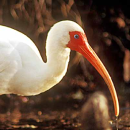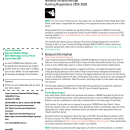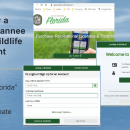Visit Us
The Lower Suwannee National Wildlife Refuge provides numerous recreation opportunities to its visitors every season of the year. People enjoy viewing the variety of habitats and diverse wildlife; whether paddling, driving, or walking.
All outdoor areas of the Refuge are open sunrise to sunset.
Areas behind the locked yellow gates are closed to driving but open to foot and bike traffic.
Location and Contact Information
About Us
Located along the southern edge of the Big Bend Region of Florida's Gulf Coast, Lower Suwannee National Wildlife Refuge was established to protect this riverine and estuarine ecosystem dominated by fresh and saltwater wetlands.
What We Do
Lower Suwannee National Wildlife Refuge was established to protect, maintain, enhance, and where appropriate, restore habitats along the lower reaches of the Suwannee River. The refuge also protects water quality and quantity through sound land resource management and cooperative relationships with state agencies that have jurisdictional authority over the water and aquatic resources therein. Further, the Refuge provides habitat for several Federal threatened and endangered species and species of special concern in the state of Florida.
Our Species
The historic Suwannee River, featured in the song by Stephen Foster, is home to many native species like whitetail deer, gray fox, otter, eagles, and the endangered salt marsh salt marsh
Salt marshes are found in tidal areas near the coast, where freshwater mixes with saltwater.
Learn more about salt marsh vole. At the Lower Suwannee NWR, wildlife comes first!
Get Involved
The mission of the Friends of the Lower Suwannee and Cedar Keys National Wildlife Refuges is to provide active advocacy and physical support for the successful stewardship of the Refuges.
Friends of Lower Suwannee and Cedar Keys National Wildlife Refuges
Projects and Research
The Refuge’s initiatives are: trails and roads maintenance for public access, law enforcement to protect the public and trust resources, supporting our Friends, Volunteers, and partners; bird surveys, forest habitat restoration, habitat management and the prescribed fire program; supporting a diverse array of wildlife dependent recreational activities, maintenance of public facilities like boat ramps and fishing piers, invasive species invasive species
An invasive species is any plant or animal that has spread or been introduced into a new area where they are, or could, cause harm to the environment, economy, or human, animal, or plant health. Their unwelcome presence can destroy ecosystems and cost millions of dollars.
Learn more about invasive species removal, and assisting FWS, state of Florida, university, and other partners on a wide array of projects.



